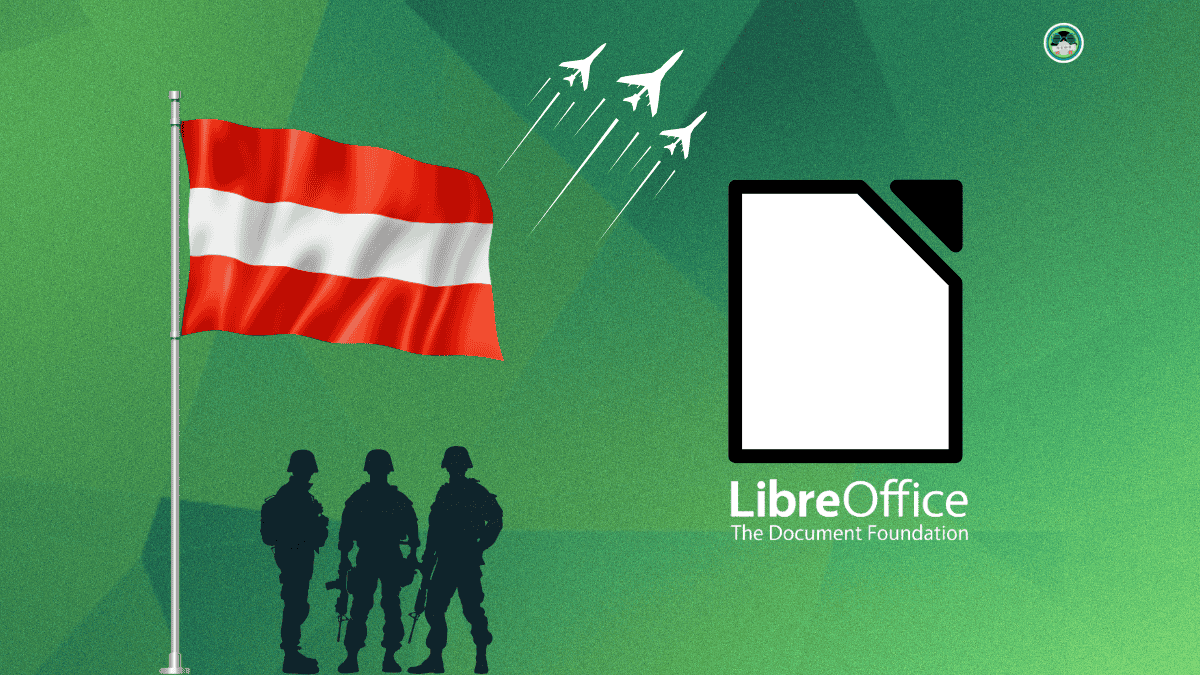
European governments have been steadily moving away from reliance on foreign tech offerings, driven largely by concerns over data sovereignty and regulatory compliance.
Countries like Germany and Denmark have already taken steps to reduce their dependence on Microsoft and other foreign cloud providers, opting instead for open source alternatives that keep sensitive data within their borders.
And, recently, Austria has shown up as another player in this space. Last month, the Austrian Armed Forces completed a migration of 16,000 workstations from Microsoft Office to LibreOffice.
Now, another Austrian government body has joined the Ditch Microsoft club.
A Welcome Move
The video is in German with hard-coded English subtitles.
Announced at the Nextcloud Enterprise Day Copenhagen 2025 event, Austria's Federal Ministry of Economy, Energy and Tourism, or BMWET for short, has migrated 1,200 employees to Nextcloud for internal collaboration and secure data storage.
The ministry is now operating on Austrian-controlled infrastructure, moving away from foreign cloud providers for handling sensitive government data. The project went from proof of concept to full deployment in just four months, an uncommonly fast timeline for a public sector IT migration of this scale.
The implementation was carried out in partnership with Atos Austria, which worked alongside Nextcloud's team to ensure the platform met the ministry's legal, technical, and organizational requirements.
How Was it Done?
The ministry implemented a hybrid setup rather than a complete rip-and-replace approach. At the time this project began, BMWET was already in the process of adopting Microsoft 365 and Teams, so a full reversal wasn't feasable.
Instead, Nextcloud now handles all internal collaboration and secure data management, while Microsoft Teams remains available specifically for external meetings (read: for people who haven't moved away from Teams).
The ministry also worked with Nextcloud partner Sendent to integrate with Outlook, allowing employees to continue using familiar email and calendar workflows.
As for the reasoning behind this move, it was prompted by a risk analysis that showed foreign cloud services failed to meet the ministry's privacy requirements, particularly regarding GDPR compliance and the upcoming NIS2 directive.
To ensure a smooth transition, BMWET invested heavily in preparing its workforce. The ministry ran an extensive information campaign that included training sessions, instructional videos, and a detailed internal wiki covering everything employees needed to know about the new platform.
The gradual rollout approach meant that employees had time to adjust rather than being thrown into a completely new system overnight. According to Martin Ollrom, BMWET's CIO, the preparation paid off. The response from employees has been quite positive, with minimal disruption to daily work.
During the announcement of this move, Florian Zinnagl, the CISO of BMWET, added that:
We carry responsibility for a large amount of sensitive data – from employees, companies and citizens. As a public institution, we take this responsibility very seriously. That’s why we view it critically to rely on cloud solutions from non-European corporations for processing this information.
Suggested Read 📖

- Even the biggest players in the Linux world don't care about desktop Linux users. We do.
- We don't put informational content behind paywall. Your support keeps it open for everyone. Think of it like 'pay it forward'.
- Don't like ads? With the Plus membership, you get an ad-free reading experience.
- When millions of AI-generated content is being published daily, you read and learn from real human Linux users.
- It costs just $2 a month, less than the cost of your favorite burger.
Become a Plus Member today and join over 300 people in supporting our work.











